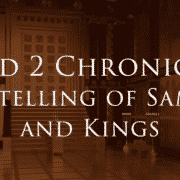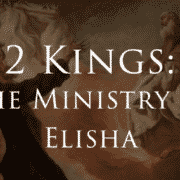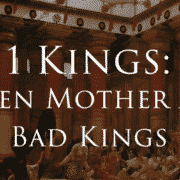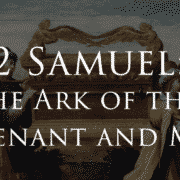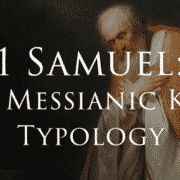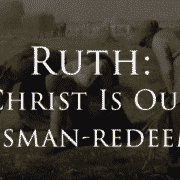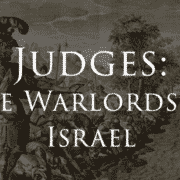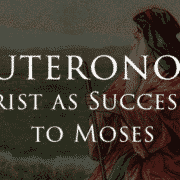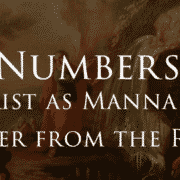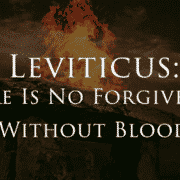2 Kings: Transferring to the Ministry of Elisha
/5 Comments/in /by Juliane AlcoberGod raised Saint John the Baptist as the forerunner to Jesus Christ. They transition from the ministry of John the Baptist to that of Christ occurred at the Jordan River. All this was foreshadowed by Elijah transferring his ministery to Elisha. We examine this important transfer and also see how it relates to the sacramental devotion of the Brown Scapular of Mount Carmel.
Read More1 Kings: Queen Mother and Bad Kings Pointing to Mary and Jesus
/7 Comments/in /by Juliane Alcober2 Samuel: The Ark of the Covenant and Mary as New Ark
/5 Comments/in /by Juliane Alcober1 Samuel: The Messianic King Typology
/3 Comments/in /by Juliane AlcoberThe biblical account of the Kingship of King David from the Tribe of Judah provides one of the most crucial theological backdrops for the person and work of Our Lord Jesus Christ as "Messiah" and anointed heir of King David. Moreover, the "Kingdom of David" is the type for the Kingdom of God and the Catholic Church as "Kingdom." In this lesson we will explore the fall of King Saul and the anointing of King David and how this typology points toward Christ the King and His Kingdom of Heaven (which is the Catholic Church):
Read More